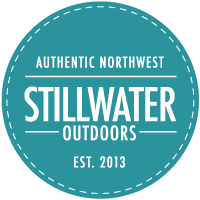I think most of us can honestly say we've been lost at some point in our lives, and I don't mean in that philosophical - where am I going in my life - kind of way. I mean lost. As in I knew where I was a moment ago, but now all the trees look the same, I can't find the trail, and I can no longer hear my hiking group.
Don't be embarrassed. It happens to people of all ages, backgrounds, and experience levels. Sometimes it's a child that wanders away while chasing after a butterfly or maybe it's an adult who scouts ahead to find an easier path only to lose their way. However and wherever and to whomever it happens, your first step is to STOP.

Stop
This may seem rather obvious, but it often the easiest (and most dangerous) to miss. Stop and sit down. Take a deep breath. Close your eyes and center your thoughts. While in a survival situation (or maybe just lost in a shopping mall), panic is the enemy. Unfortunately, it's extremely easy to panic. Our thoughts tend to run wild, and usually toward the negative. What if I'm never found? What if they leave without me? What if I get hurt?
Panic will drive you to keep moving. Panic will push you beyond safe limits, taking risks you can't afford to take. Panic will get you more lost, and yes, there is such a thing.
So stop, take a breath (or ten), and remind yourself that you can't change your situation, but you can take control of it.
Think
Your most important asset is your brain, so use it. Think about how you got there. Are there any landmarks that you passed? Think about the others in your group. Where are they headed? Think about your safety plan (every outdoor adventure should have one). When are people expecting you back? What will they do if you don't return?
Knowing how others are going to react to you being lost will help guide your actions from this point forward. You want to make it easy for them to find you, so consider how you can best do that. Think about every action you take, every footstep, every turn, everything.
Focusing on thinking through every action will help to slow you down and make it less likely that panic will take control.
Observe
While still sitting, look around you. What do you see? Anything familiar? What do you hear? The sounds of a river, voices, cars? What can you smell? Smoke? Pay attention to the world around you because there may be obvious clues as to how to get back to civilization.
Look at what you have with you. Empty your pack, your pockets, spread out all of your survival gear. Knowing what equipment you have and what you lack will help determine how you proceed from here. If you have a cell phone, can you make a call for help? Check your GPS unit. Does it have an emergency beacon?
Also consider yourself. What are you capable of? What are your skills? If you're not a strong swimmer, avoid water. If you aren't a strong climber (or don't have the proper equipment), avoid steep areas. Knowing your strengths and weaknesses is important in any survival situation.
Plan
Even with a safety plan in the hands of someone back home, someone who will send help eventually, it may take time. While you're waiting, you'll need a plan. Prioritize your immediate needs. Do you need any medical attention? Deal with that first.
Next, find shelter and focus on fire (if possible). Even in the summer, the nighttime temperatures can plummet and having a shelter and source of heat will be important. If you're in an area with large predators, avoid constructing a shelter on a game trail, where they are more likely to travel. Focus on using the materials around you (downed branches and trees, for instance).
Now that you have a relatively safe and warm place to rest, you can focus on signalling for help. Save one-time use items (like flares) for situations when they are more likely to be seen (if you see a helicopter or distant boat, for instance). You want to stand out from the wilderness around you - bright colors, straight lines and right angles, loud sounds, flashing lights. Place them in areas where they can be seen from a distance or seen from above.
And finally, source sustenance. If you have some with you, ration it. You don't know how long it will have to last. If not, create a plan to find some. Water is more important than food, though both will be necessary if you're there for any length of time. While looking for them, be sure not to wander too far from your base. Use methods to find your way back (leaving markings like piled stones, snapped branches, bits of fabric, etc). Remember, think carefully about every step you take.

Comments on post (4)
Alkagette says:
where to buy lasix in europe
veizons says:
buy kamagra with american express
veizons says:
http://gcialisk.com/ – buy cialis professional
veizons says:
Best Prices For Usa..Viagra Wekgaugh cheapest cialis 20mg markandame Priligy Forum Al Femminile
Leave a comment